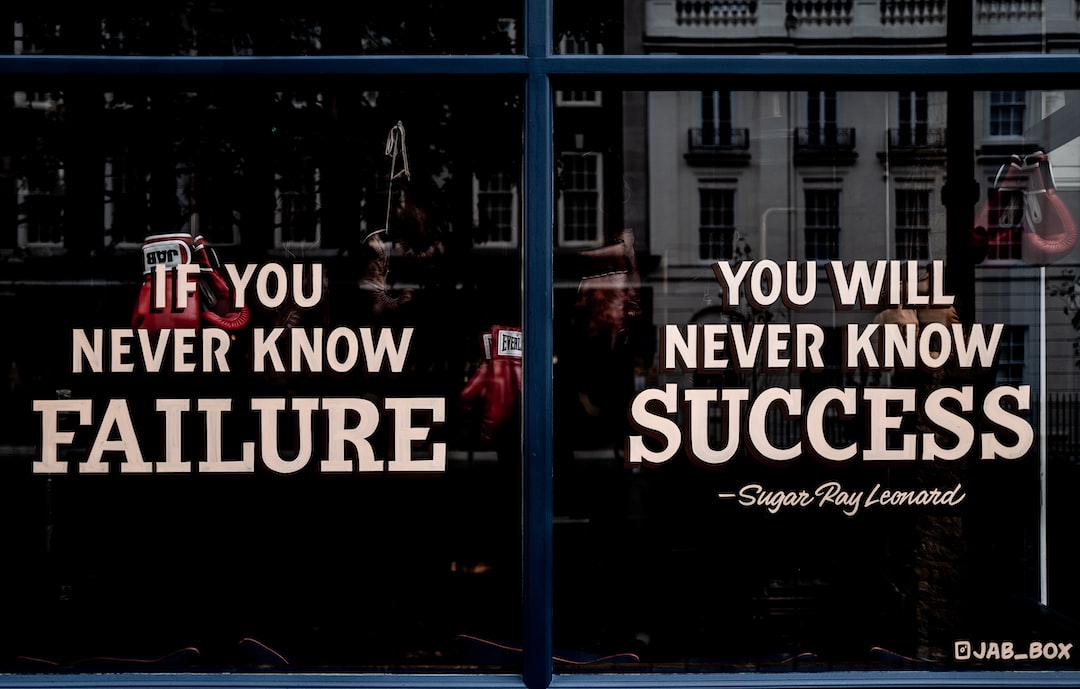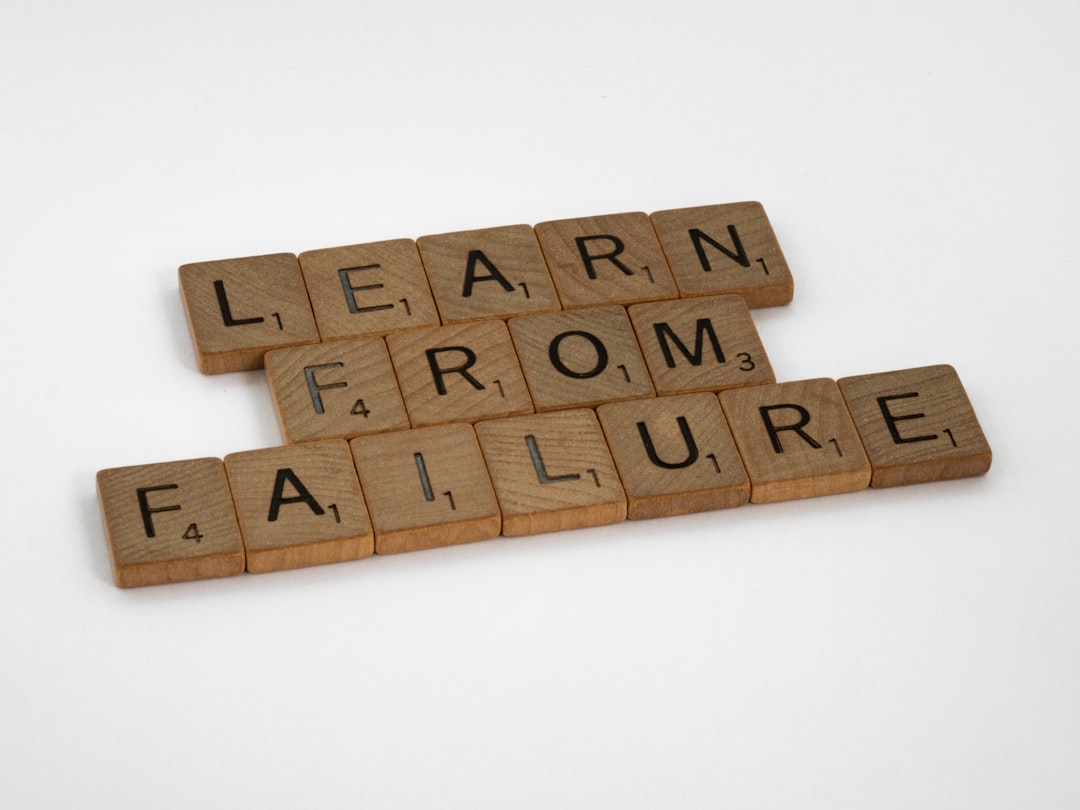Failure. Just the word sends shivers down most people’s spines. It’s something that we’re often conditioned to avoid at all costs, as if it’s the ultimate mark of inadequacy or weakness. But what if we told you that failure can actually be an incredibly powerful tool for growth and success?
Yes, you read that right. The thing is, failure isn’t something to be feared or avoided. Rather, it’s a natural part of life that we all experience at some point or another. Whether it’s a failed project at work, a relationship that didn’t work out, or a sport we just couldn’t seem to excel at, failure is something that teaches us about ourselves and our surroundings.
That’s why in this blog, we’re going to explore the power of failure and how it can help you succeed. We’ll delve into the lessons that failure can teach us, how changing our perspective on it can make all the difference, why perseverance is key, how embracing vulnerability can help us grow, and what it takes to build resilience in the face of setbacks.
So buckle up, and let’s dive into how failure can actually be your greatest ally on the road to success.
Uncovering the Lessons – How Failure Can Teach You to Succeed
We’ve all heard the saying “failure is not an option.” It’s often been drilled into our minds that failure equals defeat, and it’s something to be avoided at all costs. However, what many people fail to realize is that failure can actually be one of the best things that can happen to you.
When you stumble and fall, you have the opportunity to learn from your mistakes and grow from them. Failure can show you what doesn’t work, helping you to refine your approach and try again using a different strategy. In fact, some of the most successful people in the world have failed before they found success.
It’s important to take the time to reflect on your failures and really examine them for what they are – learning experiences. Ask yourself what went wrong and what you could have done differently. Utilize these insights to improve your performance and make better decisions in the future.
One of the biggest benefits of failure is that it allows you to embrace new perspectives and try things you may not have otherwise considered. When you are in a state of success, it can be easy to become complacent and stick with what has worked in the past. However, failure forces you to think outside of the box and be more creative in your problem-solving.
Uncovering the lessons from your failures is a key part of your personal and professional development. It takes courage to face your failures head-on and examine them, but doing so can help you to become a better overall person. The next time you fail, don’t be so quick to dismiss it as a negative experience. Instead, take the time to uncover the lessons it has to offer and use them to fuel your journey towards success.
It’s important to take the time to reflect on your failures and really examine them for what they are – learning experiences.
Changing Your Perspective: Seeing Failure as an Opportunity
Failing isn’t just about missing the mark, and it’s not the end of the world. It’s an opportunity to redefine your goals, assess your progress, reflect on your approach, and adjust your strategies. It’s a chance to learn from your mistakes, improve your skills, and challenge yourself to do better. It’s a wake-up call to reassess your priorities, values, and beliefs, and see if they align with your purpose and mission in life. So, how can you change your perspective and see failure as an opportunity?
First, reframe your mindset. Instead of seeing failure as a setback, see it as a learning experience. Ask yourself, “What can I learn from this experience? What can I do differently next time? How can I use this feedback to improve my performance?” By focusing on the process, rather than the outcome, you will become more curious, more adaptable, and more resilient. You will also become more aware of your strengths and weaknesses, and how you can leverage them to achieve your goals.
Second, don’t let fear hold you back. Many people fear failure because they associate it with shame, embarrassment, or rejection. However, when you face your fears and embrace the possibility of failure, you become more courageous, more confident, and more authentic. You also become more creative, as you are more willing to experiment, take risks, and explore new opportunities. Remember, failure is not a reflection of your worth or identity, but a natural part of the learning process.
Third, seek support from others. Whether it’s a mentor, a coach, a friend, or a family member, having someone to share your failures and successes with can help you gain a fresh perspective, get valuable feedback, and receive emotional support. They can also hold you accountable, challenge your assumptions, and help you stay focused on your goals. Don’t be afraid to reach out for help when you need it.
Finally, celebrate your progress, no matter how small. Recognize that every failure is a step closer to success, as long as you learn from it and keep moving forward. Celebrate your effort, your resilience, and your growth mindset. Celebrate your milestones, your achievements, and your values. Celebrate your uniqueness, your purpose, and your potential. You deserve to feel proud of yourself, regardless of the outcome.
In summary, changing your perspective on failure is key to unlocking your potential and achieving your goals. By reframing your mindset, overcoming your fears, seeking support, and celebrating your progress, you can turn failure into an opportunity for growth, learning, and self-discovery. So, next time you face a setback, remember, you have the power to turn it around and make it work for you.
You also become more creative, as you are more willing to experiment, take risks, and explore new opportunities.
Perseverance is Key: Why Giving Up is Not an Option
When we experience failure, it can be incredibly tempting to throw in the towel and simply give up. Whether we failed to hit a particular goal or didn’t get the results we were hoping for, it can be disheartening to think about continuing on when it seems like success is so far out of reach.
But here’s the thing: giving up is never the answer. While it may take some time to recover from a setback, it’s important to remember that success rarely happens overnight. Instead, it’s the result of hard work, perseverance, and a willingness to keep going even when things get tough.
At its core, perseverance is all about staying committed to your goals – even when the going gets tough. It means showing up every day, putting in the work, and pushing through even when it feels like everything is falling apart.
One thing to remember is that failure is not a sign of weakness, but rather a necessary part of the growth process. When we push ourselves beyond our limits and face challenges head-on, we learn a great deal about ourselves and our capabilities. And while it’s never easy to pick ourselves up and try again after a setback, it is essential if we want to grow, learn, and succeed in the long term.
So, if you’re feeling discouraged after a failure or setback, remember: giving up is not an option. Instead, dig in your heels, keep pushing forward, and trust that your hard work will pay off in the end. By embracing perseverance and staying committed to your goals, you will undoubtedly see success in the future.
Instead, it’s the result of hard work, perseverance, and a willingness to keep going even when things get tough.
Embracing Vulnerability: Being Open to Criticism and Feedback
When it comes to failure, one of the hardest things to do is be vulnerable. Nobody wants to put themselves out there and face criticism or feedback. However, vulnerability is a key component to success. When you open yourself up to the possibility of failure and criticism, you are more likely to learn and grow from those experiences.
It’s important to remember that criticism and feedback are not personal attacks. They are opportunities for you to improve and do better in the future. It may be difficult to hear at first, but taking a step back and examining the criticism through an objective lens can be incredibly helpful.
In order to truly embrace vulnerability, you have to let go of any fear of failure. This means taking risks and being okay with the possibility of not succeeding. It also means understanding that failure is not the end-all, be-all. Just because you fail doesn’t mean you are a failure. It simply means that you have an opportunity to learn and grow.
It’s also important to surround yourself with people who will support your vulnerability. This means finding people who will give you honest feedback, but also understand that you are taking a risk and putting yourself out there. Having a supportive network can make all the difference in the world when it comes to embracing vulnerability.
Embracing vulnerability is a crucial part of success. It allows you to open yourself up to criticism and feedback, which can help you learn and grow from your failures. Remember to let go of any fear of failure, surround yourself with supportive people, and keep an open mind. It may not be easy, but it’s worth it in the end.
It also means understanding that failure is not the end-all, be-all.
Building Resilience: How to Stay Strong Through Setbacks
Failure can be a painful and difficult experience to go through, but it’s important to remember that it’s not the end of the world. It is possible to bounce back from failure and come back stronger than ever before. Building resilience is a key component of this process.
Resilience is the ability to recover from setbacks, adapt to changing situations and still maintain a sense of wellbeing. When we experience failure, we can feel like we’ve been knocked down and finding the strength to get back up can be tough. However, it’s important to remember that resilience is a skill that can be developed over time.
Here are a few ways to build resilience in the face of failure:
1. Practice Mindfulness: Mindfulness is the practice of being fully present and aware of our thoughts and feelings. It can help us stay calm and focused during difficult times. Try practicing mindfulness through meditation, yoga or deep breathing exercises.
2. Learn from Your Mistakes: Failure is a great teacher. When we fail, we can learn valuable lessons that can help us avoid making the same mistakes again in the future. Take some time to reflect on what went wrong and what you could do differently next time.
3. Build a Support System: Having a support system is crucial when it comes to building resilience. Surround yourself with people who believe in you and support you, no matter what. Talk to friends, family or a therapist if you need help processing your emotions.
4. Take Care of Yourself: Self-care is essential when it comes to building resilience. Make sure you’re getting enough sleep, eating a healthy diet, and taking time to exercise and do things you enjoy.
5. Stay Positive: It’s easy to get caught up in negative self-talk after failure. However, focusing on the positives can help you build resilience. Try writing down a list of your strengths and accomplishments to remind yourself of your value and worth.
Remember, resilience is an ongoing process. It’s not something that can be developed overnight, but with practice and patience, you can build the resilience you need to bounce back from failure and come back stronger than ever before.
Conclusion: The Benefits of Embracing Failure and Moving Forward Stronger
Failure isn’t the end, it’s only the beginning. It’s a stepping stone that teaches us the value of hard work, perseverance and resilience. Failure is inevitable, and it’s important that we embrace it rather than run away from it. When we do face setbacks, it’s vital that we look at the bigger picture and consider how we can use the knowledge we’ve gained from our failures to improve ourselves and move forward stronger.
By uncovering the lessons and changing our perspective, we can gain a deeper understanding of what we want out of life and how to achieve it. We will experience criticism and feedback, but it’s important that we embrace vulnerability and learn from it rather than shy away from it. We’ll build resilience, which is essential when we encounter obstacles in life.
The truth is, no one is perfect. Everyone fails at some point in their lives, but those who succeed are the ones who learn from their failures and continue to move forward. Perseverance is key, and giving up is not an option. But if we are willing to put in the hard work, embrace failure, and stay focused on our goals, we can achieve great things.
So don’t let fear of failure hold you back. Take a chance, be brave, and learn from your failures. It may not always be easy, but the benefits of embracing failure far outweigh the risks. Remember, it’s not about avoiding failure, it’s about using it as a tool for growth and empowerment. With that attitude and mindset, you’ll be on your way to achieving your dreams and living your best life.





